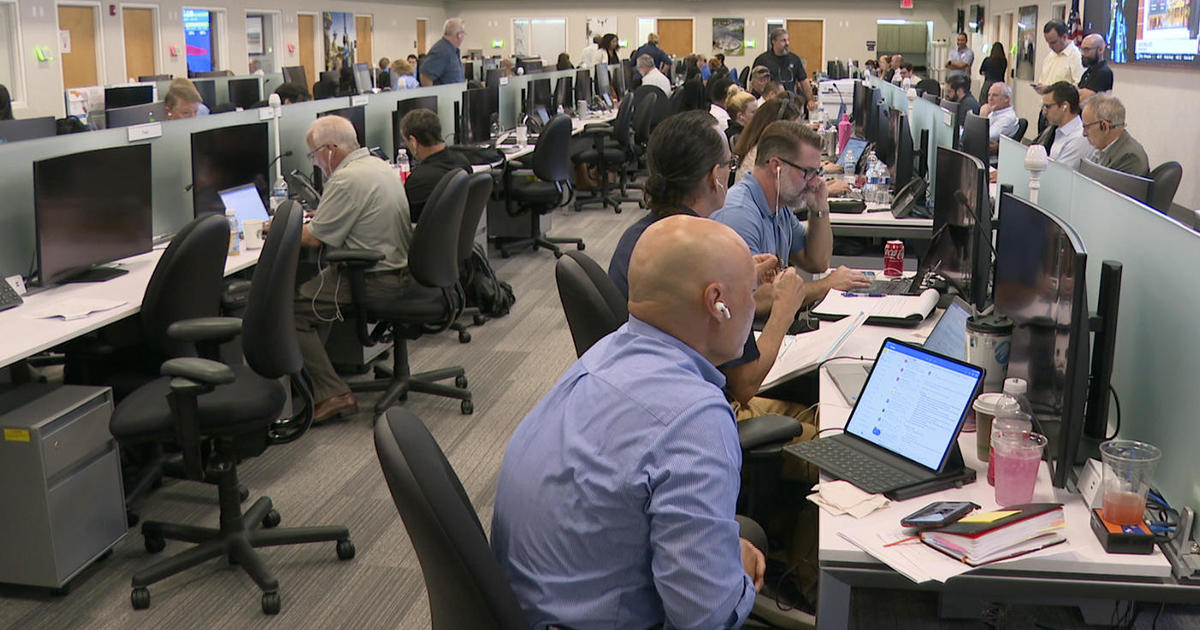Hate Having To Wake Up An Hour Earlier? You Are Not The Only One
Follow CBSMIAMI.COM: Facebook | Twitter
MIAMI (CNN) -- Last year marked 100 years since the United States established daylight saving time.
The anniversary passed with little fanfare, which is no surprise given how much people hate changing clocks twice per year. It's difficult going home from work in the dark during the fall and winter months, and then there's the struggle of losing an hour of sleep when the clocks move forward in the spring.
Researchers have also found an increase in heart attacks, workplace injuries and traffic accidents, especially in the days after the "spring forward" clock change, all due to the disruptions in sleep.
The days of biannual clock changes are likely numbered.
How can we say that?
● Florida passed a bill in 2018 to use daylight saving time (which starts in March and lasts for eight months) all year-round without ever having to "fall back" an hour in November. While it can only go into effect if the US Congress makes that possible, the Sunshine State has certainly advanced the debate and inspired other states.
● In California, nearly 60% of voters supported Proposition 7 to adopt daylight saving time permanently, although it is the first step in a long process.
● Massachusetts also passed a bill to study the issue, and the report found the advantages of staying in daylight saving time outweigh the drawbacks.
● The European Union announced it is ending support for changing the clocks twice a year, and a survey found 80% of people supported the move to stay on "summertime."
Just in the United States this year, there are more than 60 bills percolating in 30-plus states to try to fix this pesky issue.
You probably have two questions -- first of all, how do we fix it? And secondly, what does "fixed" look like?
To change our current system, either the federal government will have to take the lead, or the states. Given what appear like hourly scandals in Washington that seem to suck up all the oxygen, I've chosen to focus my attention on the states.
The Uniform Time Act of 1966, which established federal guidelines for clock changes, allows states to opt out of switching to daylight saving time from March to November and stay in standard (winter) time year-round. That's why residents of Hawaii, Arizona and the territory of Puerto Rico don't have to change their clocks. But many states would like to stay in daylight saving time year-round, which would require congressional approval.
States can, however, switch time zones. That's why several New England states are talking about moving one hour ahead to Atlantic Standard Time -- the equivalent of Eastern Daylight Time. Moving a time zone to the east and staying on standard time year-round would give people more exposure to sunlight later in the day throughout the year without ever having to change the clock. And childhood health experts say that more daylight after school will give kids more time to play.
But if one state makes the switch, it can be highly disruptive to travel, business and more for neighboring states. That's why many lawmakers are calling for change -- only if neighboring states do so as well.
One clear example of that is Connecticut, where state Rep. Kurt Vail has carried a bill for years now urging that his state move permanently to Atlantic Standard Time year-round, but only if Massachusetts does. State Sen. Will Haskell, who represents a part of Connecticut filled with people who commute to New York City every day, points out that it would be especially disruptive for his constituents if they had to change their clocks every morning when they take the train to work and again when they come home. So, during a legislative hearing and in conversations afterward, I essentially brokered a compromise where Connecticut would change only when Massachusetts and New York do so as well.
When will that happen?
Well, the New York Legislature is not known for moving quickly. Previous attempts to opt out of daylight saving failed, and a new bill simply establishes a task force to study the issue. It's hard to imagine that the task force will result in findings that drastically differ from the Massachusetts study. Either way, the new task force won't be done until after we "spring forward" in 2020.
I don't think it's a stretch to say that if New York makes the change, it could spur a number of states in the Northeast to follow suit. The same goes for California and the West Coast.
Many states are starting to address the issue. But for those who are hoping we can #LockTheClock after this weekend's change, I don't think it's going to happen anytime soon.
My best guess after working with legislators around the country for five years is that if California and New York vote to make the shift permanent in 2020, effective after we spring forward in 2021, the rest of the country and perhaps Europe will follow. If that happens, you can tell everyone that you read about it here first!
The-CNN-Wire
™ & © 2019 Cable News Network, Inc., a Time Warner Company. All rights reserved.



